#sf masterworks
Explore tagged Tumblr posts
Text

I read the majority of The Word for World is Forest by Ursula K. Le Guin under the shifting shade of the Portola redwoods. The Athsheans' world is under fierce attack by yumens, who want to mine their planet for lumber and enslave the natives who live there. But Selver dreams a world in which they can reclaim their planet, before it's too late.
This novella is pure perfection. Through showing viewpoints of the brutal, ugly Davidson, and his determination to wipe the planet clean, and of anthropologist Lyubov, who does his best but is himself a product of the colonialist mindset, Le Guin perfectly vivisects the corruption of imperialism, the way that violence spreads to be an intrinsic part of every piece of it. For ultimately, Selver and the Athsheans can only reclaim their planet by using the yumens' tools against them.
It is a superb novella, and I won't say more for fear of ruining it. It's one I'll return to thinking about again and again, and every time I think of it, I'll think of sitting beneath a 1,000+ year old tree, and of wondering what it has seen, and what it might see from us next.
Content warnings for colonization, racism, misogyny, violence, rape/sexual assault.
#ursula k. le guin#the word for world is forest#sf masterworks#classic sci fi#book recommendation#my book reviews
79 notes
·
View notes
Text
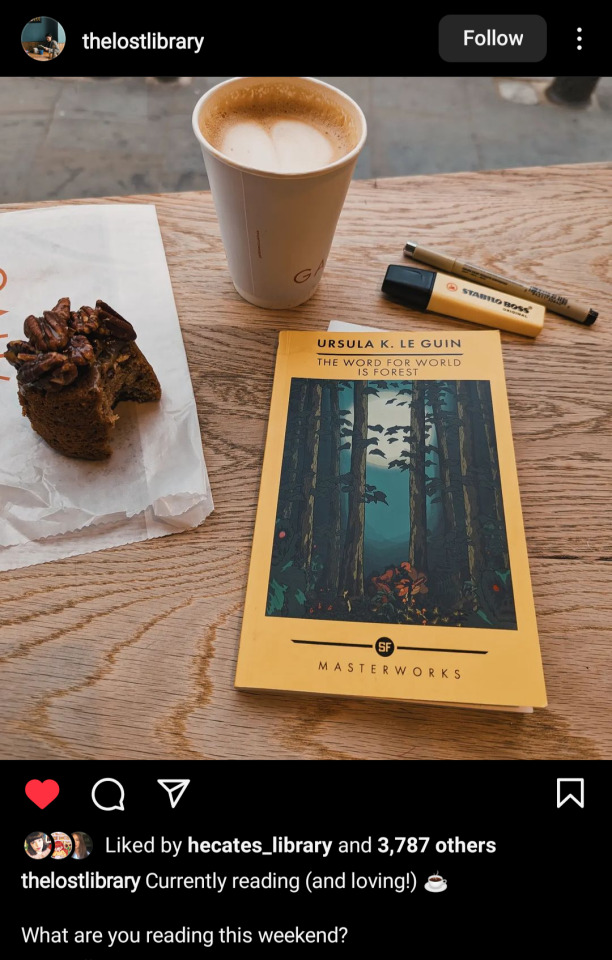
The covers to our new Best of the Masterworks editions turned out so good you guys.
Credit to thelostlibrary on Instagram for the glamour shot.
15 notes
·
View notes
Text
The Fifth Head of Cerberus Examined | Gene Wolfe's Cautionary Tale (Book Review/Essay)
The Short of It The Fifth Head of Cerberus is a complex and challenging text addressing a distinct tension about the consequences of human cloning, while also touching on postcolonial and postmodern issues. One is three and three is one, and five is not as you might think it is. The Long of It Gene Wolfe creates a complex mosaic whose decryption is at least in part subject to the reader’s…
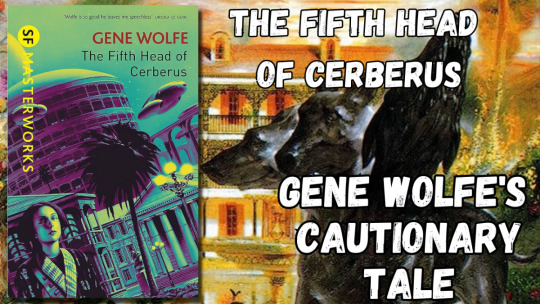
View On WordPress
#essay#fiction#Gene Wolfe#literature#postcolonialism#Postmodernism#Sci-Fi#Science Fiction#sf masterworks#The Fifth Head of Cerberus#Writing
5 notes
·
View notes
Text
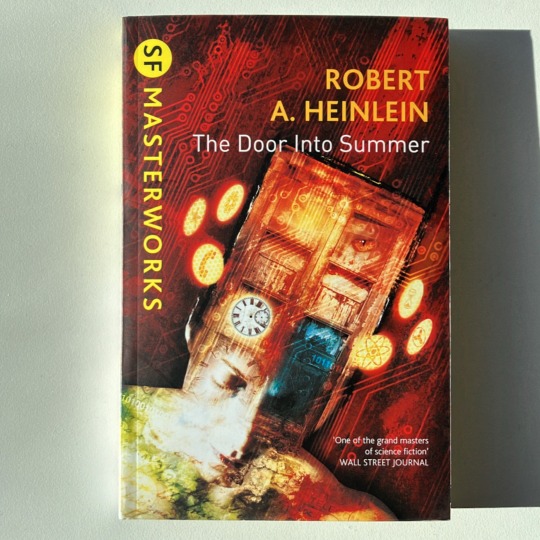
Robert A. Heinlein: The Door Into Summer (1957)
#robert heinlein#sf masterworks#science fiction#stephen baxter#suspended animation#engineering#grooming#time travel#automation
3 notes
·
View notes
Text
A Fire Upon the Deep by Vernor Vinge
The one where I review Vernor Vinge's "A Fire Upon the Deep" and wonder why I left it so long to read it. A strong 4.5 of 5 stars. #AmReading
My rating : 4.5 of 5 stars This is definitely one of those books that sticks with you. It’s an interesting mix of space opera and fantasy that switches between two narratives to tell its story, those narratives being the weirdness of a high-concept kinda-post-singularity sci-fi in which an evil sentient entity/program/construct threatens to wipe out the entire extended culture of the Milky Way,…
0 notes
Text


#booklr#books#aesthetic#Currently Reading#Fantasy books#sf masterworks#Lord Valentine's Castle#lit#bibliophile#literature
0 notes
Text

Adding what I think is the first US edition cover



vote yes if you have finished the entire book.
vote no if you have not finished the entire book.
(faq · submit a book)
2 notes
·
View notes
Text
B&N SF MASTERWORKS EPIC ART PLAGIARISM MOMENT

32 notes
·
View notes
Text



was gonna say what happend to sci-fi book covers, but this last one is not that terrible.. hate the SF masterworks tho
3 notes
·
View notes
Text
No correio (21)

Ursula K. Le Guin e SF Masterworks. Dificilmente se encontra uma melhor combinação.
(e com uma Great Horned Owl na capa!)
4 notes
·
View notes
Photo
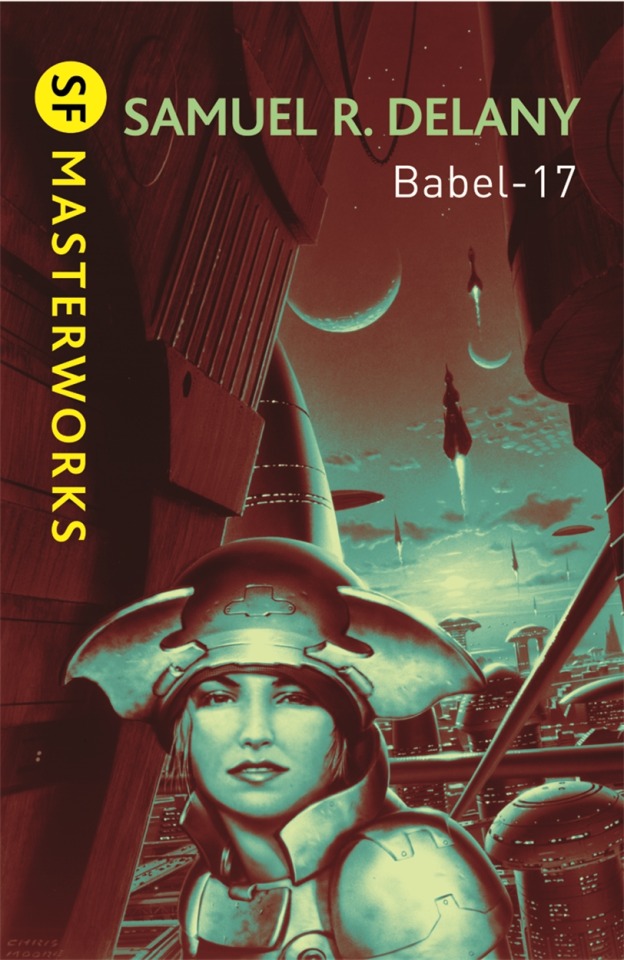
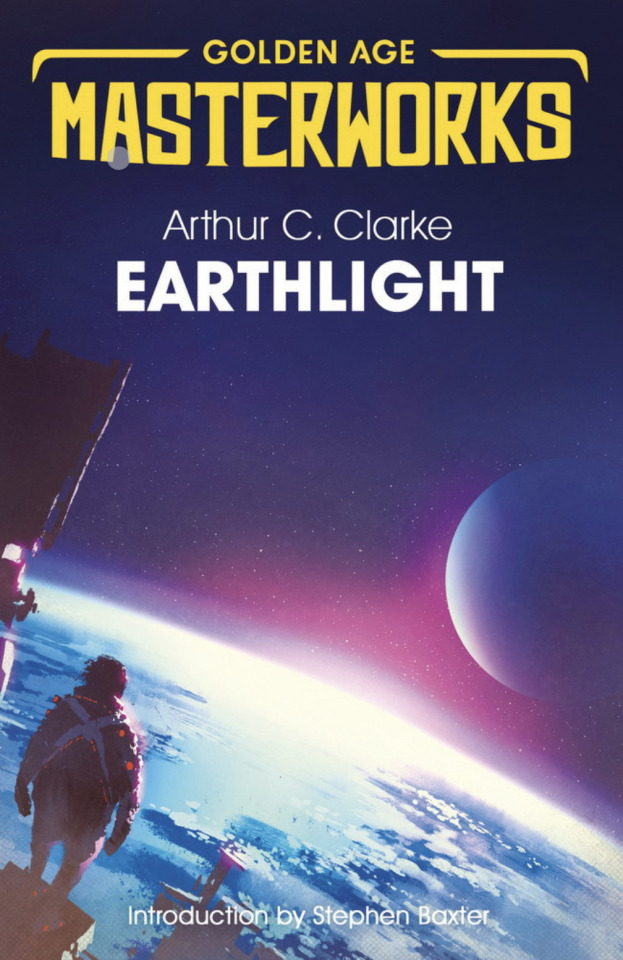
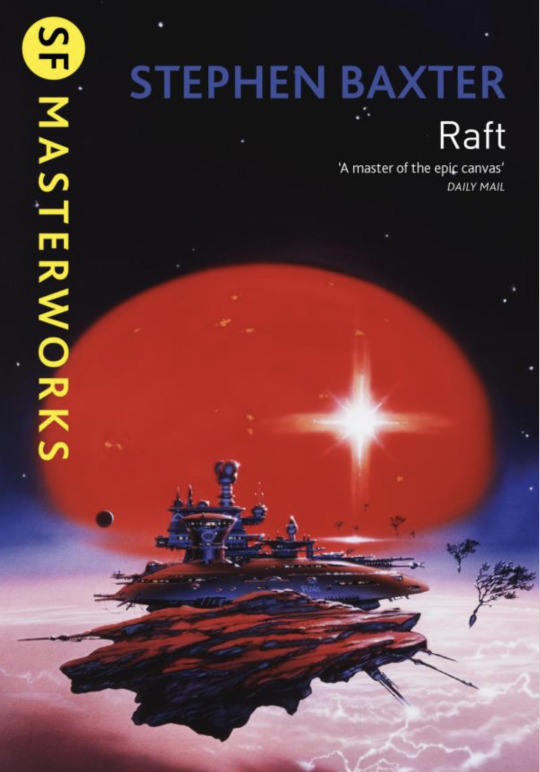
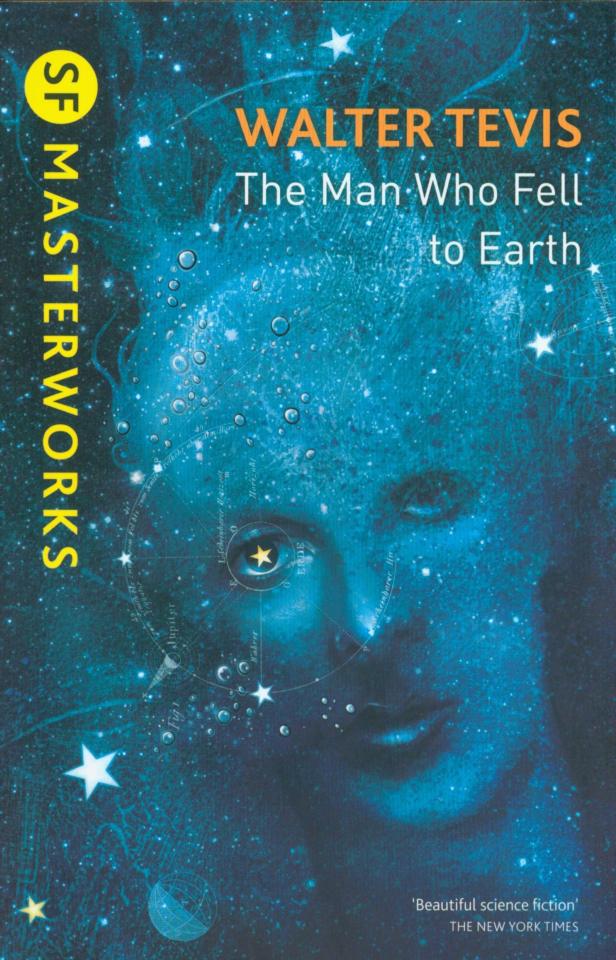
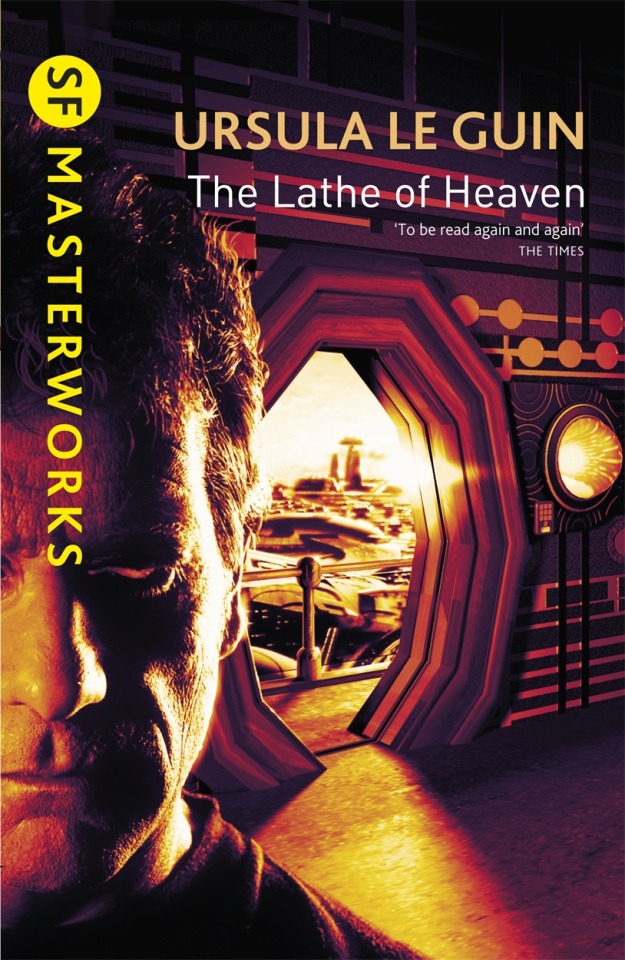
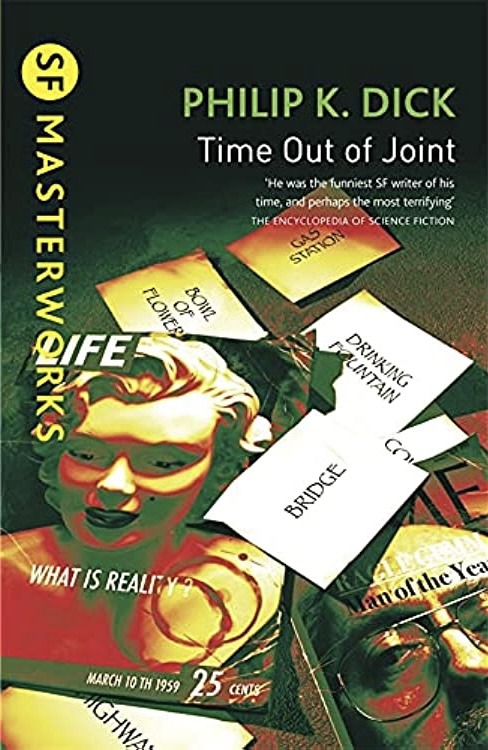
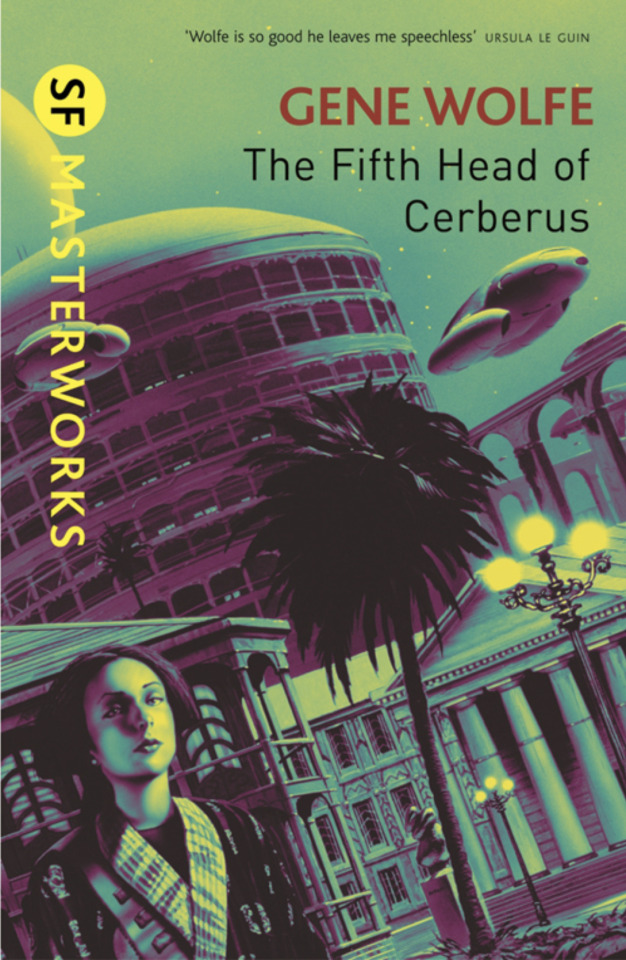
Some of the books I’ve enjoyed this year. Not doing bad for a dyslexic aphasic. SF Masterworks do a pretty good job with their selection. I’ve only found a few that are a real drudge or just plain unpleasant. GA Masterworks seem to be picking up the scraps, but they do have a lot of Clarke I hadn’t previously read. Been reading a lot of short stories too, trying to build up my attention span from effectively zero.
8 notes
·
View notes
Audio
i'm getting ready to spend another friday night on wlur from 8pm until midnight. swing by or catch up with last week's show below!
no love for ned on wlur – may 12th, 2023 from 8-10pm
artist // track // album // label jale // ali // so wound // sub pop urusei yatsura // plastic ashtray // we are urusei yatsura // rocket girl hole // violet // live through this // dgc mhaol // asking for it // attachment styles // tulle mousey // the bench // my friends // winegum cheekface // popular two // it's sorted // (self-released) kate davis // monster mash // fish bowl // anti- the long blondes // once and never again // someone to drive you home // rough trade pale lips // get up and go // if you gotta go-go, go-go now- a tribute to the go-go's // sympathy for the record industry the courettes // night time (the boy of mine) // back in mono // damaged goods vera ellen // homewrecker // ideal home noise // flying nun calvin johnson // good and crazy // gallows wine // k hannah everingham // go on // between bodies // (self-released) hayden featuring feist // on a beach // are we good // arts and crafts sweeney // home song // stay for the sorrow // observable universe golden brown // busted crystal // weird choices cassette // inner islands center // the empty gesture // over the stations // bruit direct disques abdul wadud and leroy jenkins // straight ahead (excerpt) // straight ahead // red kahil el'zabar and ethnic heritage ensemble featuring dwight trible and david ornette cherry // don cherry // spirit gatherer- a tribute to don cherry // spiritmuse cvartetul de jazz paul weiner // colinda p // spirale // electrecord drew gardner featuring marco eneidi, roberto de haven and vytas nagisetty // the human abstract // the return cassette // astral spirits john carroll kirby // jubilee horns // septet // stones throw theo croker featuring ego ella may and d’leau // theo says // by the way ep // masterworks planet giza featuring saba // wyd // ready when you are // quiet note aj suede and televangel // rosicrucian rolls royce // parthian shots // fake four yaeji featuring k wata // ready or not // with a hammer // xl heather woods broderick // i want to go // labyrinth // western vinyl waterbaby // airforce blue // foam ep // sub pop evening pines // take a few steps back // it will take a long time // both worlds the lost days // half the time // in the store // speakeasy studios sf kid loco featuring katrina mitchell // love me sweet // a grand love story // yellow productions
6 notes
·
View notes
Text

guess what went through the cover meeting today, lads
Brace yourselves, Beagle fans, we have some big news coming today.
#Gollancz Blogging#I'm Afraid You've Got Dragons#Peter S. Beagle#shitposting#excuse the box it's full of SF Masterworks that won't fit on my shelf
507 notes
·
View notes
Text
Finished reading Gene Wolfe’s The Fifth Head of Cerberus today, which reminded me of one of my great frustrations with a particular strand of publishing.
My copy (from the SF Masterworks imprint) has an introduction that says, at the bottom of the first page, “The themes of this book are memory; subjectivity and identity; and Wolfe believes - rightly - that the best way to articulate these themes is not in a linear, exteriorized, straightforward way; because (and it is really a very simple point) they are not linear, exteriorized, straightforward things.” It goes on to unpack and expound on the structure, content and interpretation of the book, before a reader who’s reading the foreword has had a change to experience the said material in a manner that is not linear, exteriorised or straightforward.
I am not able rightly to apprehend the kind of confusion of ideas that could provoke such an action.
#sometimes the only way to express myself is to misquote Babbage#anyway yeah I bailed on the introduction#read the book#went back to it#and decided the introduction-writer's read on one important part of the book is less interesting than mine anyway
6 notes
·
View notes
Text
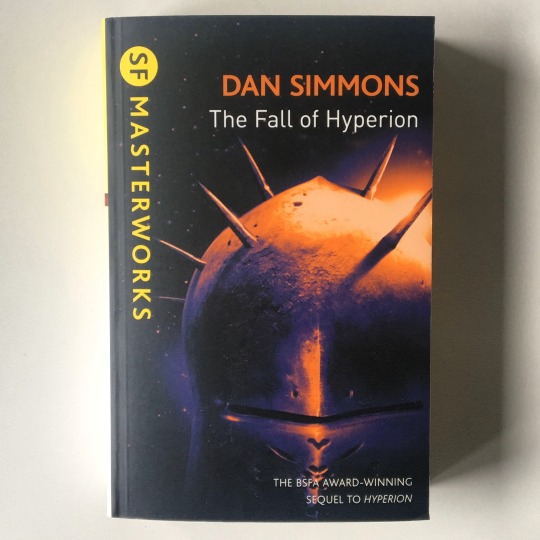
Dan Simmons: The Fall of Hyperion (1990)
#dan simmons#hyperion#science fiction#sf masterworks#john keats#shrike#space opera#interstellar#ai#pain
6 notes
·
View notes
Text

Hard To Be a God by Arkady and Boris Strugatsky
Gautam Bhatia
"You shouldn't have come down from the sky." (p. 217)
In his introduction to Danilo Kis's A Tomb for Boris Davidovich, a collection of chilling stories about the individual's mental and moral degradation under Stalinism, Joseph Brodsky writes:
"By virtue of his place and time alone, Danilo Kis is able to avoid the faults of urgency which considerably marred the works of his listed and unlisted predecessors [such as Arthur Koestler]. Unlike them, he can afford to treat tragedy as a genre, and his art is more devastating than statistics." (A Tomb for Boris Davidovich, p. xi)
For Brodsky, it would seem, distance is essential in order to effectively sublimate tragedy into art—distance of time and of place, which provides the necessary creative sanctuary that a writer needs.
But for Arkady and Boris Strugatsky, who lived and worked in the Soviet Union at the height of the Cold War, neither kind of distance could be possible. It was, instead, their choice of genre that allowed them the "ironic detachment" that Brodsky thought necessary to transform statistics into literature. In a series of novels, set in the "Noon Universe," the Strugatskys imagined a future in which the Marxist theory of history had been vindicated, a classless utopia established, and humans were now a space-faring species in a peaceful galaxy. By exploring the dysfunctions of that world, the Strugatskys were able to create a subversive literature that escaped the censor's knife.
One of the central novels in the Noon Universe is Hard To Be a God (1964), which for the last fifty years has only been available in a double translation—from Russian to English via German. This deficiency has finally been remedied. In April 2015, Gollancz brought out a new translation, by Olena Bormashenko, as part of their SF Masterworks Series. The translation features an afterword by Boris Strugatsky in which he writes that the original plan for Hard To Be a God was that of a "fun story in the spirit of The Three Musketeers" (p. 244). But in 1963, when the Soviet Writers' Union was caught up in a wave of puritan-nationalistic fervour, a backlash against the thaw of the Khrushchev years, the Strugatskys realized that "the time of 'light things,' the time of 'swords and cardinals' seemed to have passed . . . the adventure story had to, was obliged to, become a story about the fate of the intelligentsia, submerged in the twilight of the Middle Ages" (p. 244).
The fault of urgency. Brodsky would have raised his eyebrows. And indeed, the plot of Hard To Be a God suggests all the pitfalls of allegory. An unnamed planet in the Noon Universe has not yet progressed beyond the Middle Ages. Anton is one among fifty "operatives" sent by Earth to implant themselves into the society and culture of that world. The operatives are commanded to be non-interventionist gods; while they take the roles of nobles and barons in the various petty realms and kingdoms, they may only observe. Despite their ability to wield the powers of a civilisation a millennium ahead, they are forbidden from interfering with the natural progress of history. "Natural," that is, according to the "basis theory" (which, although never explicitly stated, is the Marxist materialist conception of history), which—as the book's characters repeat almost like a litany—postulates the inevitable progress from feudalism to monarchic absolutism, to capitalism, and ultimately, the communist utopia. The pain and violence of feudalism must be suffered by its inhabitants, in order to pave the necessary way to utopia. Any intervention, no matter how benevolent the aim, would be a disastrous disruption. "We're gods here, Anton, and we need to be wiser than the gods from the legends the locals have created in their image and likeness as best as they could" (p. 39).
But then Anton's realm gradually begins to descend into a seemingly unscripted orgy of violence, directed primarily against writers, artists, and historians; and when Don Reba, a leader with distinctly fascist tendencies draws ever closer to absolute power, Anton begins to feel the conflict between the postulates of the basis theory, and his own instincts to intervene as his conscience dictates. As each episode casts a further strain upon his ability to endure inaction, Anton begins to understand how hard it is to be a god.
Although Hard To Be a God was written four years before Soviet tanks rolled into Prague to "correct" the natural progression of history, the allegory is unmistakable. But perhaps what saves the novel from remaining just that is that the parallels are not limited to one historical situation. Within the genre, the theme itself is a familiar one (although the Strugatskys probably got to it first). As Ken Macleod points out in his Introduction, the Noon Universe "anticipates Star Trek and Iain M. Banks' Culture novels" (p. vi). And the way the Strugatskys write, the book could just as well be a wry take on contemporary debates around humanitarian intervention and the responsibility to protect, or a critique of colonialism's "civilizing mission." Like Coetzee's Waiting for the Barbarians, it could be located in any time, any place, and in the history of any culture. And because it could be everything and nothing, it becomes easier to read Hard To Be a God as a good science fiction yarn than an unsubtle critique of Soviet hubris.
Stalinist totalitarianism's sacrifice of individual freedom and autonomy to the iron constraints of the march towards an illusory utopia has served as the political backdrop for a number of science-fiction novels—from Yevgeny Zamyatin's We, written in the earliest years of the Soviet Union, to Orwell's 1984. What is unique about the setting of Hard To Be a God is that the internal destruction of individual freedom under Stalinism is transformed into an external set of constraints that are ultimately as morally destructive. Every time Anton is driven to act by a particularly egregious instance of violence, the "basis theory" stays his hand, causing ever-deepening crises of conscience. "I don't like that we've tied our hands and feet with the very formulation of the problem," he protests to his superior, at one stage. "I don't like that it's called the Problem of Nonviolent Impact. Because under my conditions, that means a scientifically justified inaction. I'm aware of all your objections!" (p. 37) Alexander Vasielivich's answer is simple: "Don't abuse terminology, Anton! Terminological confusion brings about dangerous consequences" (p. 40).
The primacy of terminology, the unwavering belief that history is—literally—universal, and that local situations must be interpreted to distortion, as long as they can fit within an a priori vision of historical progress, "developed in quiet offices and laboratories" (p. 45), immobilises Anton in another way: by cauterizing his very human tendencies towards moral judgment and the attribution of responsibility. In Broken April, the Albanian novelist Ismail Kadare describes the tribal law of the blood feud, the Kanun, thus: "Like all great things, the Kanun is beyond good and evil" (Broken April, p. 73). Broken April is a story about how the impersonal, amoral Kanun, which prescribes an endless cycle of revenge and counter-revenge for a crime committed time out of mind, absolves the characters of the burdens of choice, and the burdens of judging and being judged for those choices. But in Hard To Be a God, while the inevitability of the basis theory absolves Don Reba and his marauding soldiers of culpability, it casts an even more excruciating burden of choice upon Anton. "Grit your teeth," he tells himself, "and remember that you're a god in disguise, they know not what they do, almost none of them are to blame, and therefore you must be patient and tolerant" (p. 45). He is not convinced by that excuse, and neither are we.
The hubris of attempting to subject an aggregate of unpredictable, individual human actions into an iron law of historic inevitability is not new to science fiction. In Asimov's Foundation series, the scientist Hari Seldon invents the science of "psychohistory," which is predicated upon the assumption that group behaviour is as predictable and as exact as a "science." Of course, science is never predictable; and psychohistory meets (at least a temporary) failure in the shape of "The Mule," a mutant whose powers range beyond what Seldon could have imagined. When it comes to human beings, Asimov seems to be telling us, no law of necessity can ever truly account for individual variation. In a strikingly similar thought, Anton observes that "basis theory only concretely specifies the psychological motivations of the principal personality types, but there are in fact as many types as there are people; any sort of person could come to power" (p. 85). As his colleagues try—in increasingly strained ways—to fit Don Reba into a mould, into "the ranks of Richelieu, Necker, Tokugawa Ieyasu and Monck" (p. 220), Anton's suspicion grows that Reba's "psychological motivations" simply fall outside the scope of the theory. And if that is true, and as an apocalypse seems to be drawing even closer while Earth's operatives continue to theorise and temporise, will the theory's mandate of non-interference continue to hold?
As with other Strugatsky novels, that question is not answered until the very end of the book. The issue remains poised on the edge of a needle, and when we put the book down, it is simply impossible to judge which way it ought to have been decided. Like all the best science fiction, Hard To Be a God asks the most discomforting of questions, and denies us the comfort of a resolution.
1 note
·
View note